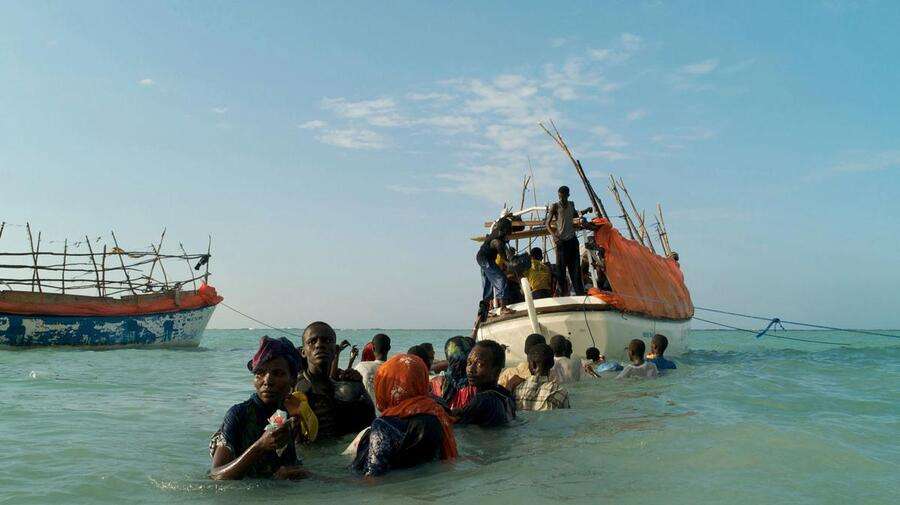Dozens of migrants die in shipwreck off Yemen

At least 76 migrants have died and dozens remain missing after a boat sank off the coast of Yemen on August 3rd, according to Radio France Internationale on August 6th. Each year, thousands of people flee the Horn of Africa in hopes of reaching wealthier Gulf countries.
The death toll is already severe, and expected to rise. On August 4th, the International Organization for Migration (IOM) reported that the vessel was carrying 157 people, mostly from Ethiopia, when it went down in the Gulf of Aden, off southern Yemen.
The migrants had hoped to reach Gulf nations such as Saudi Arabia. Their journey began in the Horn of Africa, particularly in Ethiopia, Sudan, Eritrea, and Djibouti, a region where poverty, conflict, and instability continue to drive people to seek safety and opportunity elsewhere.
According to Marina de Regt, an anthropologist at the Free University of Amsterdam who specialises in migration between the Horn of Africa and Yemen, most migrants on this route are Ethiopian men. “Ethiopia is going through a very difficult period. The Tigray war (2020–2022) has ended, but instability persists, and there is a lot of poverty,” she said. “In search of better living conditions, work, and security, some try to reach the Gulf countries, especially Saudi Arabia.”
Many of these journeys are facilitated by smugglers who exploit migrants’ desperation. “[They] incite and convince people to migrate and take the risk,” de Regt explained. “In many cases, migrants pay without even knowing they will have to cross the sea and go through Yemen to reach Saudi Arabia.”
Speaking to RFI’s Guilhem Delteil, Abdusattor Esoev, head of the IOM mission in Yemen, confirmed: “The migration is organised through a network of cross-border smugglers that exploits people’s despair and need for better jobs and opportunities.”
According to the IOM, the route from the Horn of Africa to Yemen is one of the most frequently used in the world. In 2024 alone, an estimated 60,000 people have arrived in Yemen.
Marina de Regt also expressed concern over the lack of international attention: “These migrations between Southern countries are not considered important by the political establishment, especially in Europe […] All they care about is that migrants don’t end up on their territory.”
Esoev described the route as “one of the most important,” but also one of the world’s deadliest. The IOM estimates that over the past 10 years, 3,400 migrants have died along it, including 588 in 2024 alone, with 462 deaths caused by shipwrecks. In March 2025, four migrant boats sank off the coasts of Yemen and Djibouti, only two people survived.
The dangers don’t end once migrants reach land through their makeshift boats. Yemen, still engulfed in civil war, poses grave threats to migrants, including starvation, insecurity, and violence.
“Migrants and refugees’ exploitation is common,” said de Regt. “It happens that some are kidnapped by gangs, and female migrants are sometimes sexually exploited by criminals.” The instability caused by the ongoing conflict enables this violence to flourish. Despite these risks, the number of arrivals has only increased since 2014.
In April 2024, East African migrants were caught in the escalation between the United States and Houthi rebels. American airstrikes on a migrant detention centre in Sanaa, a Houthi stronghold, killed 68 civilians and injured dozens more.
For those attempting to continue their journey into Saudi Arabia, the danger persists. In 2023, Human Rights Watch revealed that between March 2022 and June 2023, Saudi border guards had killed hundreds of Ethiopian migrants and asylum seekers trying to cross the Yemen-Saudi border.
“The checkpoint guards fire randomly at migrants trying to cross. It’s a very risky undertaking,” de Regt confirmed.
Even those who manage to find work in Saudi Arabia often live in precarious and unstable conditions, at constant risk of detention or deportation. “Sometimes men are deported back to Ethiopia,” de Regt said, “but they try again, even knowing how dangerous the route is. They will start again because they are desperate.”
Radio France Internationale, Human Rights Watch, Maghrebi.org
Want to chase the pulse of North Africa?
Subscribe to receive our FREE weekly PDF magazine














